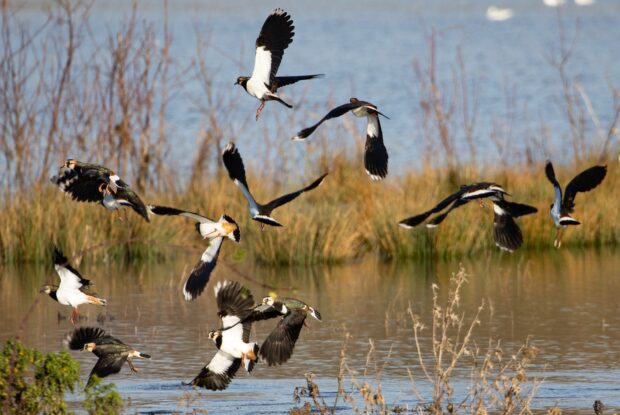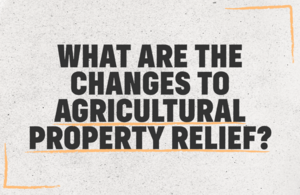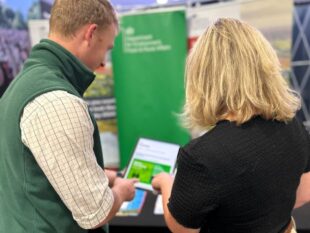
I’m excited to share an invitation to farmers and other land managers to join one of our online introductory sessions about the Landscape Recovery pilot.
The sessions will be a chance to learn more about the upcoming pilot, ask questions and share your ideas for its development. Your feedback and questions will help us develop and finalise the details of the scheme.
The scheme
Landscape Recovery is 1 of our 3 new environmental land management schemes, alongside the Sustainable Farming Incentive and Local Nature Recovery.
Through the Landscape Recovery scheme, we aim to put in place bespoke agreements to deliver long-term, large-scale, landscape and ecosystem recovery projects.
These projects will deliver a wide variety of environmental outcomes and support local environmental priorities. They will also make an important contribution to national targets, like the 25 Year Environment Plan ambitions and achieving net zero carbon emissions.
Scheme timings
We’ll launch at least 10 pilot projects between 2022 and 2024, to deliver over 20,000 hectares of wildlife-rich habitat. We aim to invite bids for the first wave of pilot projects in the autumn.
Our plan is that those projects successful at this initial application phase will be supported to undertake project development starting in early 2022.
Projects that meet our requirements at the end of the project development phase will then be awarded a long-term funding agreement, allowing them to begin.
We aim to scale-up delivery of the scheme from 2024.
Proposed pilot eligibility
We’re currently planning to open applications to sites between 500 to 5,000 connected hectares. Applications can be made by any landowner or land manager, including individuals, organisations and collaborative groups.
Projects that have received or are receiving funding from other government schemes will be able to apply (though you will not be paid twice for the same activity).
We will assess bids to identify those that are best able to deliver our objectives and most suitable for the scheme.
We look forward to discussing proposals in more detail with those interested in the scheme at our online sessions.
Themes of the first pilots
The first wave of pilot projects are likely to focus on 2 themes:
- Recovering and restoring England’s threatened native species: birds and insects.
- Restoring England’s streams and rivers: improving water quality, biodiversity and adapting to climate change.
We will also expect the projects to deliver other benefits, such as carbon savings to help achieve net zero.
Sign up for a session
The information sessions will take place on the following days. To attend, just follow the links below.
These 3 sessions will be the same, so attend whichever one is most convenient for you. We will record the sessions, so you will be able to catch up later if you’re not able to attend. Do let others know about these sessions too.
If the Landscape Recovery scheme isn’t right for you, don’t worry – there are other schemes for which you might be eligible. Read our How Farming is Changing page which gives a summary of the other schemes.




 The
The 
23 comments
Comment by Helen Dale posted on
I can't make the link work?
Comment by grahamhiggins posted on
Hi Helen, I see my colleague Sarah has helped you with this. I trust all OK now. Thank you, Graham
Comment by Helen Dale posted on
Yes, thank you for the help.
Comment by Rodney Aldis posted on
I am involved with Chet Valley B-Line, a 17 km pollinator corridor, that is a tributary of the lower River Yare in Norfolk. We are working with parish councils, farmers, gardeners, government bodies, the Norfolk Wildlife Trust and interested members of the public.
I am wondering whether the B-Line might be a good candidate as a pilot scheme?
Comment by Sam Burford posted on
Hi Rodney,
Hope you’re well and thanks for your comment. We have not yet made any firm decisions on eligibility for the Landscape Recovery pilot. We will provide more detail on our current proposals for eligibility and how applications will be assessed during the Market Engagement sessions over the next few weeks. You can sign up to one of these sessions at the links above. You will be able to feed in any thoughts you have as part of these sessions, and all the feedback received will help us finalise the design of the pilot including eligibility.
Thank you.
Sam
Comment by Caroline Corsie posted on
Hi Sam .
Can you give update on current status of Landscape Recovery application opening window ? Yours Caroline Corsie
Comment by Sarah Stewart posted on
Hi Caroline,
We will release more information on applications opening and the publishing of our guidance very soon. As soon as that happens, we'll publish it here on the blog. You can keep up to date on the latest information about changes to farming, including on Landscape Recovery applications and guidance, by subscribing to the blog (just go to the 'Sign up and manage updates' on the right hand side of the screen if you're using a computer/iPad or scroll to the bottom of your screen if you're using a mobile phone)
Best wishes,
Sarah
Comment by Rodney Aldis posted on
Thank you for your reply Sam. I am registered for the August 18th webinar.
Rodney Aldis
Comment by Marian Herod posted on
We are a voluntary wildlife conservation group protecting and maintaining Crompton Moor in Greater Manchester. We are currently working with Manchester City of Trees, and Moors for the Future. Our main projects are natural flood management and peatland restoration, along with recording all of the wildlife for Greater Manchester Ecology Unit. Our site isn't big enough to qualify for a pilot scheme, but we want as much involvement as possible to gain knowledge. Over the last 3 years, we have planted 5,000 broadleaf trees; built Leaky Dams; planted 11,000 plugs of Sphagnum and are monitoring 90 randomly placed quadrats on our moorland to monitor the vegetation. Do you think the Landscape Recovery scheme pilot is relevant to what we are trying to achieve?
Comment by Sam Burford posted on
Hi Marian,
Thank you for your comment. Although we are currently planning to open applications to sites between 500 to 5,000 connected hectares, we have not yet made any firm decisions on eligibility for the Landscape Recovery pilot. We will provide more detail on our current proposals for eligibility and how applications will be assessed during the Market Engagement sessions over the next few weeks. If you haven't already, you can sign up to one of these sessions at the links above and can feed in any thoughts you have as part of these sessions. All feedback will help us finalise the design of the pilot, including eligibility.
You should also consider looking into other schemes, such as the Countryside Stewardship or the upcoming Local Nature Recovery scheme. If you would like more detail on these schemes, I would recommend taking a look at the Agricultural Transition Plan update which Defra published at the end of June this year and signing up to our Future Farming e-alerts to find out more about upcoming opportunities to get involved. I'll post it below.
Thanks,
Sam
http://www.gov.uk/government/publications/agricultural-transition-plan-2021-to-2024
Comment by Fairfax , Dartmoor Society posted on
Landscape Literacy : An Observation from the Dartmoor Society
Yesterday, Thursday 19th August 2021, Alan Endacott, Mike Rego and I walked out to Whitemoor Stone circle via Taw Marsh to take some photographs. One observation, when passing through a fine herd of Galloways and Blue Greys, was just how much of the Molinia was both grazed and being grazed, contrary to the often quoted belief that cattle don’t find Molinia that palatable after the spring flush. The grazing made walking easy and it was great to find that the site wasn’t buried in vegetation, which is certainly happening in other areas of the moor.
We all agreed why we think Dartmoor is leaving itself vulnerable to wild fires through the spread of Molinia, and the solution a simple one – there is not enough grazing by cattle on Dartmoor
Best wishes, Chris
Comment by Nick Viney posted on
Completely agree. A planned grazing approach on the high moor is the key to nature recovery, reduced flooding by repairing the small water cycle and eliminating fire risk through keeping the Molinia in a vegetive state . It is all doable and a very exciting time for Dartmoor.
Comment by John H posted on
How will we be able to access the recording of the sessions if we're unable to watch the live event?
Comment by Sarah Stewart posted on
Hi John
You can watch them here: https://youtu.be/eiK2LOdei8w and here: https://youtu.be/3d1FTaPlaSk
Best wishes,
Sarah
Comment by Tanguy Tomes posted on
Any update on when expressions of interest will open?
Comment by Sarah Stewart posted on
Hello there,
We will be ready to share more in the new year.
Best wishes,
Sarah
Comment by Ed R posted on
Hi
Sorry, I'm late to the party.
A few questions:
Do you have a recording of the Sept. session?
Is the application form & guidance available yet?
Is the Landscape Recovery scheme compatible with other, non-agricultural land uses such as sport shooting (driven or walked-up grouse and pheasant shooting, deer stalking etc), and if not, would income lost by cessation of such activities be included in 'Bespoke income forgone'?
An observation: 1 weeks notice and a 6 week application window is awfully short to draft a scheme that could involve multiple applicants/stakeholders and permissions. I'm guessing therefore that you already have your 10 pilot schemes lined up?
Regards,
Comment by Linda Beard posted on
Dear team
Is there any further information available on eligibility and the application process for the Landscape Recovery pilot?
Thank you
Comment by Sarah Stewart posted on
Hi Linda,
We're just finalising a few last details before we publish more information early in the new year.
Best wishes,
Sarah
Comment by Ethan posted on
Hi,
Are there any updates on the application process for the Landscape Recovery pilot? How to make an application?
Thank you
Comment by The Team posted on
Hi Ethan,
Thanks for visiting the blog. We blogged about this just last week - we intend to launch a second round of pilot projects next year and will confirm the proposed theme(s) for that round in the first half of this year.
Here's the post: https://defrafarming.blog.gov.uk/2022/01/06/find-out-more-about-local-nature-recovery-and-landscape-recovery/
With best wishes,
The Future Farming Team
Comment by Simon posted on
The blog does not say when and how to apply for this year's pilot? Could you please give guidance on whether it will even be possible to apply this year for the first Pilot schemes?
Comment by Sarah Stewart posted on
Hi Simon,
Thank you for your interest in Landscape Recovery. We will open applications shortly - so do subscribe to the blog for an update as soon as it happens. This will be a competitive process open to any individuals or groups who think they can deliver the ambitious impact we are seeking. When we launch the application process we will publish full guidance for applicants, including how to apply and how bids will be assessed. Projects will then have 16 weeks to prepare their applications before the application window closes.
Best wishes,
Sarah